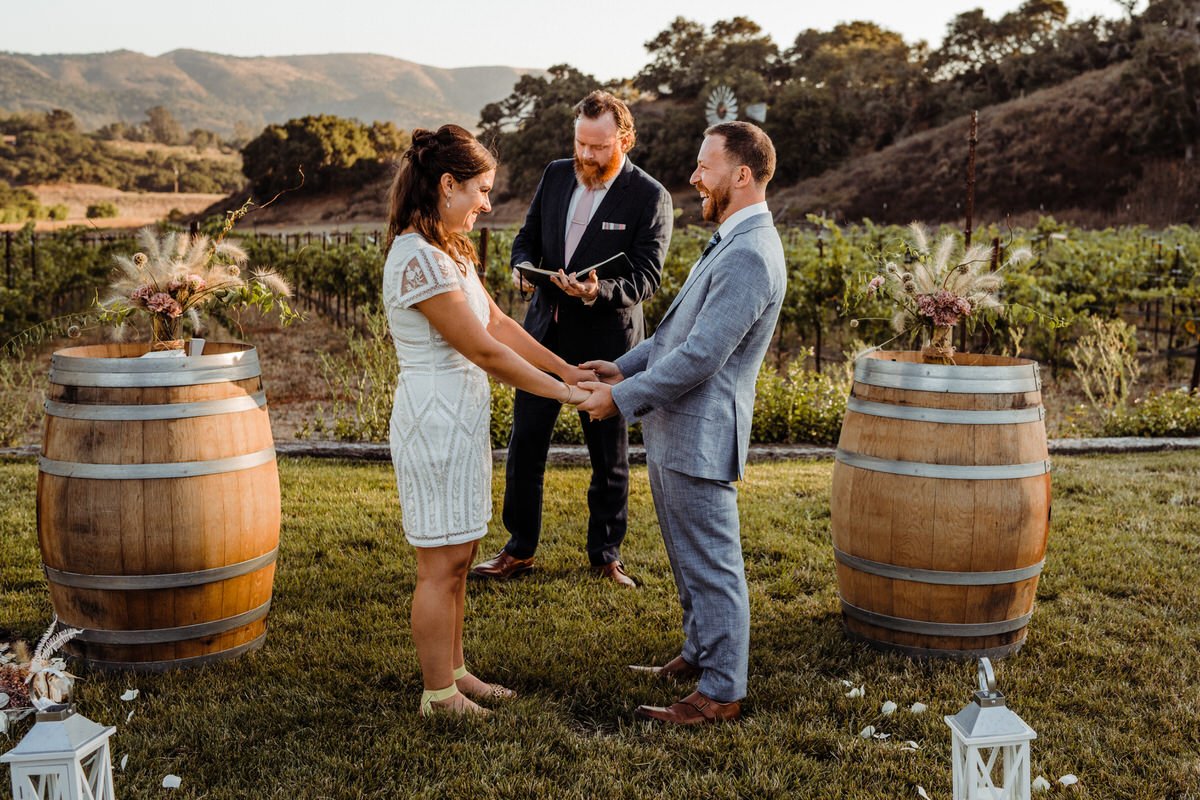is it legal to elope?
This is one of the most common questions about eloping, and I think it shows just how mysterious the whole concept of eloping is still! Eloping still requires the same legal process and paperwork that a more traditional wedding would have in order to be recognized by the government. The specifications vary by state and do change over time, so it’s important to check with the appropriate agencies beforehand (I’m not a lawyer + this shouldn’t be taken as legal advice)
Here I’ll outline a few key points to consider when you’re investigating the legal requirements to elope. This information should be useful so that you have a leg up on getting your elopement plan set up legitimately!
Your wedding license will need to come from the jurisdiction where your ceremony will be taking place. Typically there’s a fee, but some jurisdictions only charge for certified copies of the marriage license. In order to apply you’ll need personal information like your birthplaces and parents’ names, your social security cards, valid photo ID, and money to cover the fee. Double-check you meet the requirements with the county/state you’re getting married in!
Witnesses: some licenses require a witness’ signature - in Utah, it’s actually two witnesses - and others don’t require witnesses at all.
Some states require blood tests from one or both partners as part of the license process.
Consider the waiting period for the application AND the ceremony (if applicable!). If you’re planning to elope in a different state than you live in the waiting period could significantly alter your wedding plans! Some places allow online applications, while others require the application to be filled out in person at the courthouse.
After your application for the wedding license is submitted, you won’t have to wait to receive it unless you are in the following states:
24 hours before license can be picked up:
3 days before license can be picked up: Alaska, District of Columbia, Florida (unless you attend a marriage prep class), Kansas, Massachusetts, Michigan, Mississippi, New Jersey, Oregon, Pennsylvania, Washington
5 days before license can be picked up: Minnesota, Wisconsin
In most states, your wedding ceremony can be performed any time after you receive your license, but in certain states, that’s not true.
States with a 1-day waiting period: Delaware, Illinois, New York
States with a 2-day waiting period: Maryland
States with a 3-day waiting period: Iowa, Louisiana, Texas
In most cases, there’s also an expiration of your wedding license. In California, your wedding must be performed 90 days from the date you pick up your license, but it varies! In Oklahoma for instance, your wedding must take place in the ten days following your license approval, in Utah you have 32 days, in Wyoming you have up to 1 year. This isn’t an exhaustive list of course - check with the state you wish to be married in for specifics!
In Colorado, you don’t even need a wedding officiant to perform the ceremony! This is called self solemnization.
See more information comparing state regulations side by side here. Additional information summarizing US Marriage Laws, like common-law marriages, residency requirements, and more can be found here.
Note: The above information is subject to vary, as requirements often change by state and county. This information is offered as guidance only and should not be regarded as legal advice.
can we elope anywhere?
After you research the county/state requirements of the place you wish to elope, it’s time to get specific. Despite elopements being super small and taking up less space/making a smaller impact than a traditional wedding, there are typically still permits, reservations, and plans to consider. Some places, like Rocky Mountain National Park, only allow a certain number of elopements to take place per year (see more on their special use permits). State and National Parks vary in requirements, and sometimes you’ll work with agencies like the California Film Commission. Check with the appropriate agencies and/or property owners to ensure you’ve fulfilled the necessary requirements to host your elopement in the space you’re considering!
This goes for private home rentals through sites like Airbnb and VRBO, too! Some hosts allow small weddings under a certain number of guests to take place on their property for free; others require a fee or additional deposit; others don’t allow events of any size to take place at all, either by their own decision or by legal requirements, insurance factors, or zoning laws. If you intend to host a small wedding/elopement ceremony or reception or have photos taken at the Airbnb you’re staying in for any reason, it’s super important to be considerate of your host and ask their permission first!

